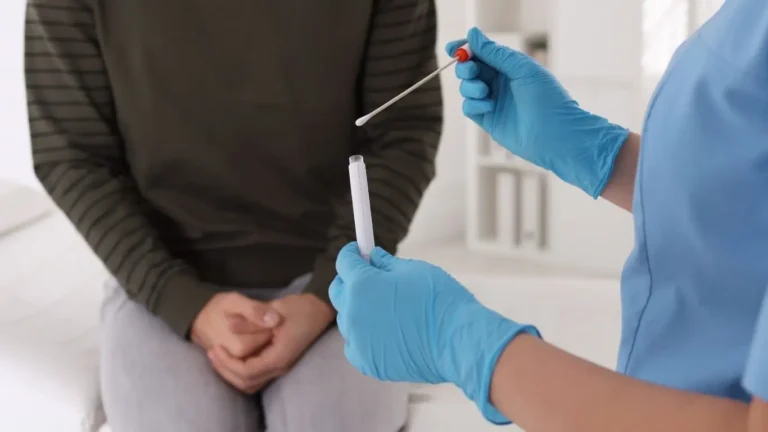Can Rheumatoid Arthritis Cause Jaw Pain? Effective Relief Tips
Can rheumatoid arthritis cause jaw pain? That’s a question I hear more often than you might think in my rheumatology clinic. Most folks associate RA with joints like the hands, wrists, or knees—but the jaw? Yes, the temporomandibular joint (TMJ) can absolutely be involved, and when it is, it’s not just annoying—it can really interfere with eating, speaking, and even sleeping. I’ve seen patients completely surprised by this connection, but once we talk it through, the pieces start to click. So let’s dive into how and why rheumatoid arthritis can mess with your jaw.
Understanding the Link Between RA and Jaw Pain

Rheumatoid arthritis (RA) is an autoimmune condition that causes chronic inflammation in the joints. And yep, that includes the tiny but mighty temporomandibular joints—the ones that connect your jawbone to your skull. These joints are often overlooked until they start acting up. In my experience, jaw involvement doesn’t usually show up early on, but when it does, it can sneak up gradually or hit like a ton of bricks.
RA doesn’t discriminate between big or small joints. It can cause swelling, stiffness, and even erosion of the TMJ—just like it does in the hands or feet. Some of my patients have told me they thought they were developing a dental issue because the pain was so localized near the mouth or ear. Others described a clicking or popping sound every time they chewed. And some couldn’t even open their mouth all the way without discomfort.
How Common Is TMJ Involvement in RA?
Interestingly, studies suggest that up to 50% of people with rheumatoid arthritis may experience TMJ issues at some point. But it’s also often underreported—maybe because jaw pain just gets chalked up to stress or teeth grinding. I’ve had patients say, “Oh, I thought it was just TMJ dysfunction,” not realizing that RA could be the underlying culprit.
Here are some typical signs that the TMJ might be affected by RA:
- Stiffness or aching in the jaw, especially in the morning
- Difficulty or pain when opening the mouth wide
- Clicking, grinding, or popping noises in the jaw
- Jaw locking in open or closed position
- Ear pain or headaches that seem jaw-related
These aren’t just inconvenient—they can interfere with daily life in really frustrating ways. Imagine not being able to bite into a sandwich or yawn comfortably. I’ve seen patients become anxious about eating in public or speaking up in meetings because of jaw discomfort.
Why Rheumatoid Arthritis Targets the Jaw

RA targets synovial joints—and guess what? The TMJ is one of those. It has the same basic anatomy as other synovial joints, meaning it’s got cartilage and a fluid-filled capsule, both of which can become inflamed when RA flares up. Over time, this inflammation can lead to erosion of the joint surfaces and structural changes.
One of my patients—a vibrant woman in her 40s—came in thinking she had a sinus infection because of the pressure and tightness near her jaw and ear. After we dug a little deeper (and ruled out other causes), it was clear her RA was playing a bigger role than she thought. It took some adjustments to her treatment plan, but once we got the inflammation under control, her jaw pain began to ease up.
Other Factors That Can Make Jaw Pain Worse
RA-related jaw pain can be compounded by other issues too. Things like:
- Stress-related teeth grinding (bruxism)
- Poor posture—especially from screen time or phone use
- Chewing tough foods or gum regularly
- Not using supportive pillows during sleep
In my clinical work, I always ask about lifestyle habits, not just medications. Sometimes, tweaking these simple things can make a big difference—especially when paired with appropriate RA treatment.
What It Feels Like to Have RA Jaw Involvement

From a patient’s perspective, this kind of jaw pain feels deep and achy—not sharp like a toothache. It’s more of a tight, burning soreness that doesn’t always go away with rest. A lot of people describe it as feeling like their jaw is “rusty” or “stuck,” especially in the morning. I remember one patient telling me she had to massage her face for five minutes just to be able to drink her morning coffee.
Sometimes there’s swelling you can see or feel near the joint, but not always. And since the TMJ is so close to the ear, it can be tricky to tell what’s what without imaging or a detailed evaluation.
Diagnosing Jaw Pain Related to Rheumatoid Arthritis

So, if you’re wondering, “Can rheumatoid arthritis cause jaw pain?” — the answer is yes, but pinpointing it isn’t always straightforward. Diagnosing TMJ involvement in RA can be tricky because jaw pain has so many possible causes. From dental problems to stress-induced jaw clenching, the list is long.
When patients come to me with jaw complaints, I start by taking a thorough history—asking about when the pain started, what makes it worse or better, and any other joint symptoms they might be experiencing. One key part is checking if there are signs of systemic RA activity—like morning stiffness in other joints, swelling, or fatigue. Those clues can help confirm that the jaw pain is part of the bigger RA picture.
Physical exam is next. I gently palpate the TMJ to see if it’s tender or swollen. I’ll listen for any clicking or popping sounds when the patient opens and closes their mouth. It’s also important to check how wide they can open their jaw and if there’s any deviation or locking. Sometimes, I can actually feel inflammation in the joint capsule itself.
Imaging can be incredibly helpful here. X-rays may show joint space narrowing or bone erosions. But more detailed scans like MRI or CT can reveal soft tissue inflammation, synovitis, or early erosive changes that don’t show up on plain films. Over the years, I’ve seen how MRI has changed the game—catching problems early and allowing for faster treatment adjustments.
Other Tests That Might Be Helpful
- Blood tests: Checking inflammatory markers like ESR and CRP can show if your RA is active.
- Rheumatoid factor (RF) and anti-CCP antibodies: These help confirm the diagnosis of RA, especially if jaw symptoms appear early on.
- Dental evaluation: Sometimes, a dentist’s exam is needed to rule out other causes like infections, abscesses, or occlusal issues.
In my clinic, I find working closely with dentists or oral surgeons is key. Sometimes, the overlap between RA-related TMJ pain and common dental problems makes a team approach the best way to get to the bottom of the pain.
Treatment Options for RA Jaw Pain

Managing jaw pain caused by rheumatoid arthritis isn’t one-size-fits-all. It’s about combining good RA control with targeted strategies to ease the specific discomfort in the jaw. Over the years, I’ve seen patients respond best when we approach it from several angles.
Medications to Control Inflammation
The backbone of treatment is controlling the underlying autoimmune inflammation. If the TMJ is flaring up, that usually means the RA isn’t fully under control. Here’s what I often recommend or prescribe:
- DMARDs (Disease-Modifying Anti-Rheumatic Drugs): These drugs, like methotrexate or leflunomide, help slow disease progression and reduce inflammation over time.
- Biologics and JAK inhibitors: For patients who don’t respond well to traditional DMARDs, newer medications can be a game-changer in reducing joint inflammation including the jaw.
- NSAIDs: Non-steroidal anti-inflammatory drugs help with pain and swelling, though they’re usually a short-term fix rather than a long-term solution.
- Steroids: Sometimes a short course of oral corticosteroids or even a local steroid injection into the TMJ can calm inflammation quickly.
From personal experience, balancing medication effectiveness with side effects is crucial. Some patients worry about long-term immunosuppression, but when the jaw pain disrupts everyday life, we work together to find the safest, most effective plan.
Physical Therapy and Lifestyle Adjustments
Besides medications, I always emphasize non-drug approaches. Physical therapy tailored to the TMJ can make a big difference. Stretching exercises, gentle massage, and sometimes ultrasound therapy help reduce muscle tension and improve joint mobility.
Simple lifestyle tweaks can help too:
- Avoid hard or chewy foods: Think softer meals that don’t stress the jaw.
- Manage stress: Because stress can worsen bruxism (teeth grinding), relaxation techniques or even a night guard can protect the TMJ.
- Posture improvements: Keep your head and neck aligned to reduce extra strain on the jaw muscles.
- Warm compresses: Applying warmth can ease muscle stiffness around the jaw.
One of my patients swore by alternating warm and cold packs, combined with daily jaw stretches. It wasn’t a cure, but it gave her some much-needed relief during tough flare-ups.
When to Seek Specialist Care for Jaw Pain in RA

If your jaw pain doesn’t improve with basic treatments, or if it’s severe enough to limit how much you can open your mouth, it’s time to see a specialist. Rheumatologists like me can help tailor your RA treatment, but sometimes a referral to an oral surgeon, pain specialist, or TMJ expert is necessary.
Keep an eye out for these warning signs:
- Persistent or worsening pain despite treatment
- Jaw locking or inability to open/close the mouth fully
- Visible swelling or deformity around the jaw
- Signs of infection, like fever or redness
Early intervention can prevent long-term damage to the TMJ and improve your quality of life. Don’t hesitate to bring up jaw pain with your rheumatology team—even if it seems minor, it’s worth attention.
Living with Rheumatoid Arthritis Jaw Pain: Tips from a Nurse Practitioner

Managing jaw pain caused by rheumatoid arthritis is often about more than just treating inflammation—it’s about adapting to life with this persistent challenge. Over my years as a rheumatology nurse practitioner, I’ve learned that patients do best when they take an active role in their care and incorporate simple daily habits that make a real difference.
First off, communication is key. If you’re experiencing jaw discomfort, don’t downplay it or assume it’s just “part of RA.” Bring it up with your healthcare provider. From my experience, patients who openly discuss all their symptoms—including the jaw pain—get more personalized and effective treatment plans. Sometimes that means adjusting medications; other times, it’s about integrating physical therapy or dental consultations.
One thing I always stress is to listen to your body. The jaw is a small joint, but it works hard every day—from chewing to talking to yawning. If something feels off, like pain or stiffness creeping in, try to rest the joint as much as possible. Avoid chewy or hard foods and don’t overuse the jaw with excessive gum chewing or yelling (trust me, I’ve seen some cases where intense cheering at events made symptoms worse!).
Simple At-Home Strategies That Help
- Gentle jaw stretches: Opening your mouth slowly and holding for a few seconds can help maintain flexibility. I often teach patients easy exercises that only take a few minutes a day.
- Warm compresses: Applying heat can soothe muscle tightness and improve blood flow around the joint.
- Stress management: Since stress often triggers jaw clenching or grinding, activities like meditation, yoga, or even simple breathing exercises can reduce tension and protect the TMJ.
- Use of night guards: If you grind your teeth in your sleep, a custom-made dental guard can prevent extra wear and jaw strain.
- Maintain good posture: Believe it or not, how you hold your head and neck affects jaw alignment. Sitting and standing tall with your chin slightly tucked can ease pressure on the TMJ.
One patient I worked with was a teacher who’d struggled with jaw pain for months. We adjusted her RA meds and introduced jaw exercises, but the real game-changer was when she started taking five-minute mindfulness breaks during her busy day to release neck and jaw tension. It’s these small, practical tweaks that often make a huge difference in managing symptoms day-to-day.
When Surgery or Advanced Treatments Are Needed

While most people with RA-related jaw pain can find relief through medications and lifestyle changes, there are cases where the damage to the TMJ is significant enough to require more advanced interventions. This is less common but something worth knowing about.
Surgical options may be considered if the joint has severe erosion or deformity that causes persistent pain or functional problems, such as difficulty opening the mouth. Procedures can range from minimally invasive arthroscopy (where the joint is cleaned out) to joint replacement surgery in extreme cases.
That said, surgery is generally a last resort. Before it comes to that, your rheumatologist and oral surgeon will explore every non-surgical avenue, because the jaw is delicate and complex.
Emerging Treatments and Research
RA treatment is constantly evolving. Researchers are developing new medications and techniques to better target inflammation and prevent joint damage early on. For the TMJ specifically, some promising studies are looking at biologics that can more precisely control the immune response, potentially reducing jaw involvement before it causes permanent damage.
From a clinical standpoint, staying informed and proactive with your healthcare team is the best way to benefit from these advances as they become available. And as always, personalized care is critical because everyone’s RA journey is unique.
Final Thoughts on Can Rheumatoid Arthritis Cause Jaw Pain?
Absolutely, RA can cause jaw pain—and it’s more common than many realize. The key is awareness and early intervention. With the right combination of medication, lifestyle adjustments, and professional support, you can manage this challenging symptom and keep living your life fully.
Remember, your jaw pain matters. Don’t hesitate to bring it up during your visits, and work closely with your rheumatology team to find the approach that fits your needs.
References
Disclaimer
This article is intended for informational purposes only and does not replace professional medical advice, diagnosis, or treatment. Always consult your healthcare provider regarding any questions or concerns about your health or a medical condition.

Tarra Nugroho is a dedicated Nurse Practitioner with a strong foundation in family and preventive care. She brings both compassion and clinical expertise to her practice, focusing on patient-centered care and health education. As a contributor to Healthusias.com, Tarra translates medical knowledge into clear, empowering articles on topics like women’s health, chronic disease management, and lifestyle medicine. Her mission is simple: help people feel seen, heard, and informed—both in the clinic and through the content she creates. When she’s not caring for patients, Tarra enjoys weekend hikes, plant-based cooking, and curling up with a good health podcast.







